Over the last years, I have done a couple of hundred interviews, mainly for developer positions, scrum masters, and product owners. Some people do well, others don’t, and it has nothing to do with seniority or how many years you have been in the industry. People coming from universities having their first job interview often feel nervous about what to expect and master an interview. There are many different ways to hire the best fit for your teams; therefore, there is no silver bullet or general dos and don’ts. Nevertheless, in this article, I want to provide some guidance on what I have learned to be aware of in job interviews if you’re going to do well, at least in viesure interviews.
Don’t play buzzword bingo in your CV.
What I have seen a lot is that people are playing buzzword bingo in their CVs. They are listing a lot of fancy frameworks, tools, and technologies, but they know nothing but the name and have never worked with them. Some just put it in their CV because they have worked on a project where it was used, but never used it themselves.
Even if some developers are making a game out of it (see figure below), a competent interview partner will quickly figure it out. There are two ways to address this pitfall. The first one is to put only things in your CV you have personally worked with or acquired some theoretical knowledge.
The same is true for certifications, frameworks, etc. that have been acquired a while ago. It’s fair to have them but try to refresh your knowledge before the interview. There will be questions about it.
Be on time & be prepared.
Being on time is a straightforward but essential thing. It shows the company that you are capable of self and time management. Be early – just plan 10 minutes longer for your trip if it’s an on-site interview, or if it’s an online interview, check your technical setup before the interview. If it’s an online interview, make sure you have a quiet place, turn your webcam on because 80% of our communication is non-verbal, and make sure you won’t be interrupted.
Read the job advert
Matching your skills with the requirements is very important. It’s not necessary to fulfill all the requirements. Still, you can spend some time gaining some theoretical knowledge about the topic. Even if you have no practical experience, you can show the interviewer that you have invested some time to prepare. Be honest about it, it’s okay and cheerful.
Familiarize yourself with the company.
A job is a relationship between you and the company. It should match. Therefore, you should spend some time doing some research even if there is not much information available; it’s OK to mention that in the interview. It shows the interviewer you have tried, and you can cite some sources that you have found, like specific blog posts or success stories.
Have a vision where you want to go
Having an idea of what you want to do is very important. It’s not about “I want to be a developer” – be more specific.
- What frameworks do you want to learn?
- What methods do you want to use?
- What knowledge do you want to build up besides Java?
- Which other programming languages do you want to learn?
Good companies want people who like to develop themselves and build up knowledge and skills. Therefore, self-motivated people are what is preferred. Furthermore, the interviewer also knows how the company can support you in your personal development with answers to these questions.
Ask questions
Last but not least, ask. A job interview is not like a reporter interviewing a Hollywood star. Both you and the interviewer should ask questions. It is about getting to know each other. It’s about finding a match. It’s about you getting all the information to feel comfortable starting a job at this company. It is about creating transparency for both parties. You can prepare questions in advance, but the best questions usually are follow-up questions on the interviewer’s topics. Asking questions is a form of competency that is very important in each job; therefore, it’s positive for you to ask.
Take it easy but not too easy.
Find the sweet spot between being too nervous and too relaxed.
Even if a good interviewer sees that your behavior is just the result of stress, you should try to be at your optimal performance somewhere in the middle between too relaxed and too stressed. Some say, “you have to stress the candidate to see how she/he performs.” I think that’s useless if you are interviewing for developers or similar positions. Usually, no one is sitting in front of you asking you questions, and the everyday work life is not like an interview – you can always use StackOverflow to figure everything out in your real work-life :P.
Summary
None of these tips is sufficient if you are not good at your job and know your domain, but hopefully, it helps navigate through interviews and creates more transparency. The more you practice, the better and more confident you will get!
